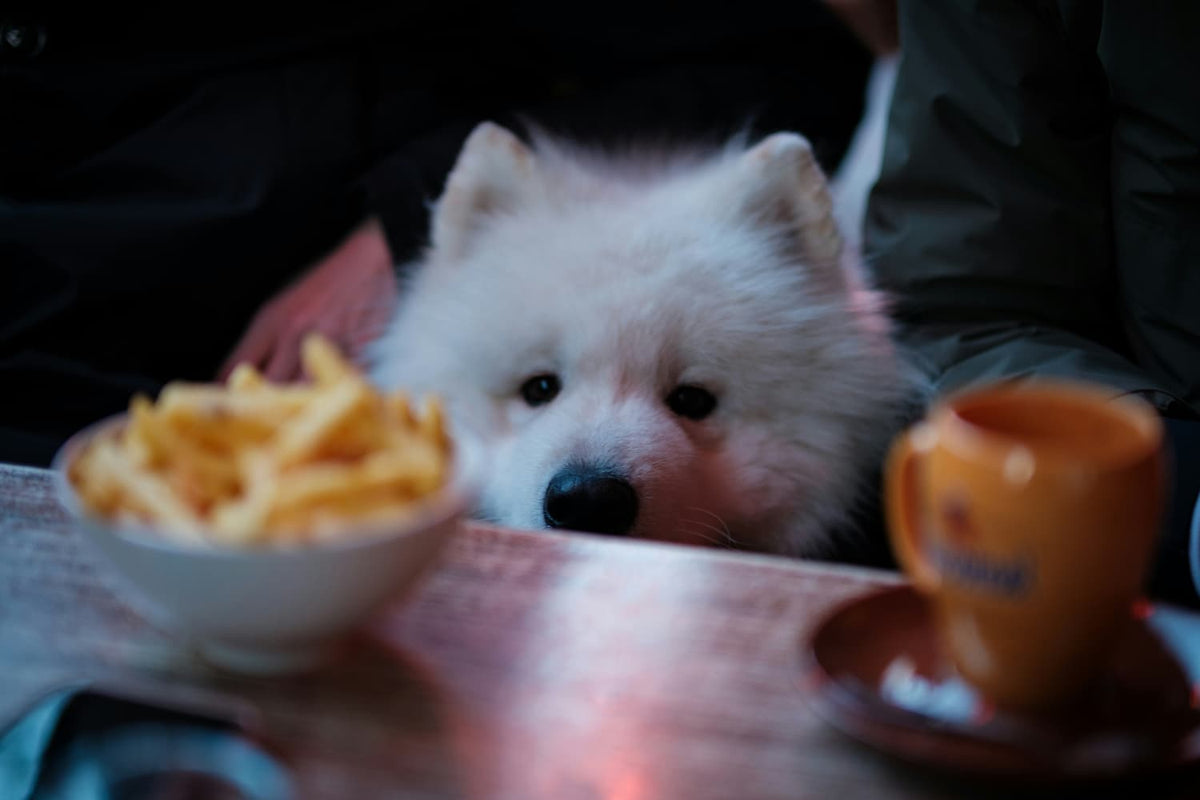
Can Dogs Eat Table Scraps?
|
|
It’s a classic scenario: you’re finishing dinner and spot your dog giving you that look. The one that says, “Just a little bite, please?” While it may feel like a harmless act of affection, regularly feeding your dog table scraps can lead to a host of health and behaviour issues. From digestive upset to long-term conditions like pancreatitis, your well-meaning gesture could have serious consequences.
In this guide, we explore everything you need to know about dogs and table scraps - what they can eat, what to avoid, and how to break the habit safely and effectively.
It depends - but mostly, no. While a small amount of plain, dog-safe food isn’t usually dangerous, most table scraps are simply not suitable for dogs. Human food tends to be rich in fat, salt, sugar and seasonings, all of which can irritate your dog’s digestive system or worse. Over time, feeding scraps can also encourage picky eating and unhealthy begging habits.
If you’re feeding a complete and balanced dog food like Years, your dog is already getting everything they need-no extras required.
If you really can’t resist giving your dog a taste of what’s on your plate, stick to safe, plain, and unseasoned foods (this includes salt) in small amounts:
These options should only be offered as occasional treats and make up no more than 10% of your dog’s diet.
If your dog is turning down their food and holding out for human leftovers, they’ve likely learned that refusing meals leads to tastier options. It’s not fussiness-it’s smart behaviour. Over time, this can result in nutritional imbalances and behavioural issues, such as food guarding or begging during meals.
However, these benefits are best gained through a varied, balanced diet. Tomatoes should only be offered occasionally, not daily.
Breaking the habit takes consistency and patience. Here’s how:
Yes - many table scraps can upset your dog’s stomach or even cause serious illness.
Here are common risks:
Even a single “treat” from your plate can cause harm, especially in small dogs or those with sensitive stomachs.
Absolutely - and it’s one of the most common (and dangerous) outcomes of feeding fatty scraps. Pancreatitis is an inflammation of the pancreas, often caused by a sudden intake of rich or greasy food.
Common culprits include:
Symptoms include vomiting, diarrhoea, lethargy, belly pain, and loss of appetite. If you notice these signs after a fatty meal, see a vet straight away-pancreatitis can become life-threatening quickly.
Yes - regularly offering table scraps can cause or worsen behavioural issues, including:
Feeding from the table blurs the line between mealtime and treat time. It can make training more difficult and lead to a dog that’s constantly scrounging for more.
No - puppies have very specific nutritional needs while they grow, and table scraps don’t offer the right balance of vitamins, minerals, and calories. Feeding human food can lead to nutrient imbalances and even stunt development. Stick to a puppy-formulated complete food, and avoid scraps altogether during this vital growth stage
Feeding your dog table scraps may seem harmless-or even loving-but it often leads to more harm than good. Scraps can contribute to digestive upset, encourage bad behaviour, and increase the risk of conditions like obesity and pancreatitis.
By sticking to a complete, properly balanced food like Years, you ensure your dog gets everything they need-without the hidden risks. And if you want to treat them? Choose healthy, dog-safe options instead.
Try a Years trial box today and discover a fresh way to feed your dog-one that supports their health, happiness, and longevity. Because healthier dogs mean more years together.
Only if the ingredients are dog-safe, plain and free from salt, onions, garlic, or sauces-and only in small amounts.
Onions, garlic, chocolate, grapes, raisins, avocado, and artificial sweeteners like xylitol are all toxic.
Never give cooked bones-they can splinter and cause serious internal injuries. Raw bones can be safer, but only under veterinary guidance.
Human food should never exceed 10% of your dog’s daily intake - ideally less.
Look for air-dried treats, single-protein chews, or freeze-dried training bites that are designed for canine digestion.
